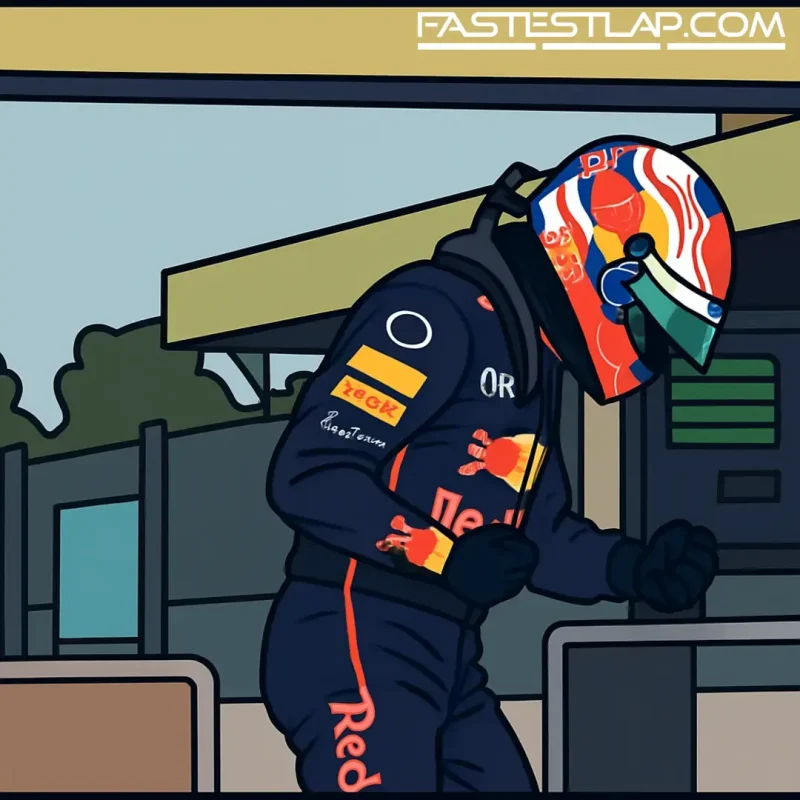Marko smells blood after Monza: ‘Everything’s possible now’ as Verstappen, Mekies reset Red Bull’s season
Max Verstappen left Monza with a winner’s trophy and, more importantly, the feeling he’s been chasing all year: control. Pole and a lights-to-flag victory at the Italian Grand Prix reset the tone inside Red Bull, where Helmut Marko now believes there are more wins on the table before the year’s out.
This was the team’s first victory since Imola and its first Grand Prix win under new team principal Laurent Mekies, who took over from Christian Horner. The contrast to last season’s Monza, when Verstappen could do no better than sixth, was stark. The RB21 was the car to beat on low downforce — tidy in a straight line, planted under braking, serene on exits. The McLarens were chasing shadows.
Verstappen admitted the weekend felt different from the cockpit. After months of wrestling with a narrow and sometimes baffling setup window, he said the team finally stopped “shooting left and right” and found a direction. He credited Mekies’ engineering-first approach — asking the right, almost obvious questions — with getting the garage to simplify the noise and lean into what the driver feels.
“You try things, you learn a little each time,” Verstappen said. “We took a step at Zandvoort, then another one here. I didn’t feel like a passenger.”
Marko, never shy about calling it as he sees it, said the difference is that Verstappen’s input is being acted on — and not drowned out by the simulator. According to the Red Bull advisor, there’s more willingness now to challenge the numbers, merge them with experience and build a car that behaves. The top-speed gains at Monza, he pointed out, gave Verstappen the ability to drive away from the McLarens instead of managing them in the mirrors.
“The engineers are listening more to the driver,” Marko said, framing it less as a revelation and more as a course correction. Blend hard data with Verstappen’s feel, add a couple of updates that actually deliver, and you get a car that’s predictable and quick. A winning formula, in other words — and a 20-second margin at Monza that even he didn’t see coming.
Mekies, for his part, played down his fingerprints on the victory. But inside Red Bull, the groundwork has changed. Preparation is different. Discussions are more open. And, crucially, the team isn’t “blindly taking what the simulation says,” as Marko put it.
Now comes the question everyone’s asking: is this a one-off, or the start of a proper late-season surge? Verstappen’s win trimmed his championship deficit to 94 points with eight weekends left, three of them Sprints. He was realistic in the afterglow: Red Bull tends to look handier at low- and medium-downforce venues, and there are tracks ahead that will put more load into the car and more stress into that finicky setup window. The title defense remains a long shot.
Still, Marko is leaning forward in his chair again. He points to Zandvoort as proof the team’s new direction works somewhere that’s historically been awkward for them, and he circles Baku’s power-heavy layout as another chance to bite hard. He even fancies Singapore — a place that’s often exposed any nervousness at low speed — as a realistic target now. “Everything is possible,” is the line he’s running with.
It helps that Verstappen is as locked-in as he’s been all season. After a summer dabble that included a GT3 test at the Nürburgring and more chatter about extracurricular racing, Marko joked his driver has gone quiet on the side projects. Winning has a way of focusing the mind.
The bigger picture? Red Bull hasn’t suddenly reinvented itself. It found a balance. A car that listens to its driver. A leadership voice that cuts through the noise. Monza was the proof of concept, even if it came on a track that flatters Red Bull’s current strengths.
The hunt for more wins is alive. The hunt for the title? That’s still a steep climb. But for the first time in a while, you get the sense they’ve got a map — and a driver ready to sprint.




